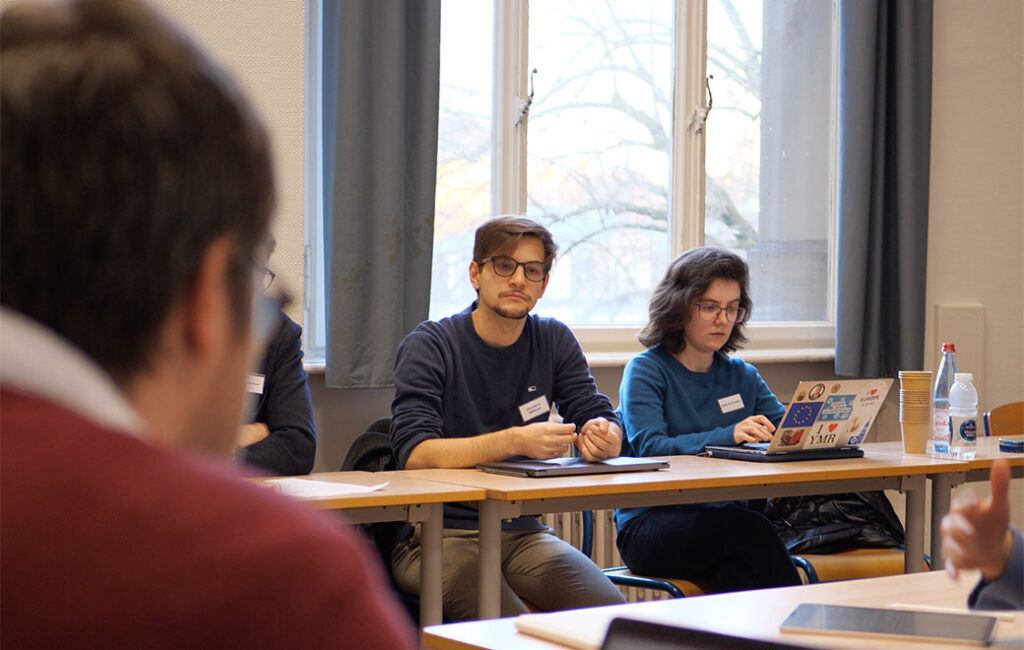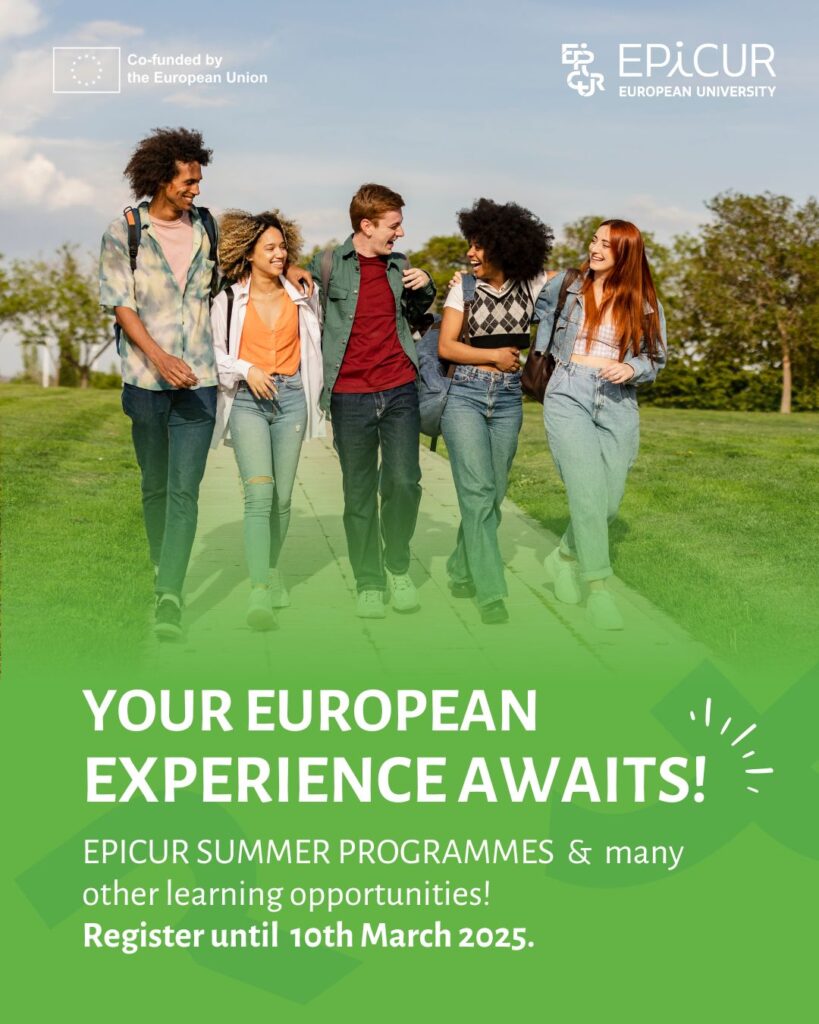European learning: EPICUR offers interdisciplinary and intercultural learning activities for all
Freiburg, 19.02.2025
EPICUR, the European university alliance, offers students from its nine member universities innovative teaching and learning opportunities, including intensive courses, summer and winter schools and courses in a variety of face-to-face and online formats. Already this year, EPICUR has held a winter school on “The Return of the 19th Century”, which was attended by 20 students from four EPICUR universities. Registration is now open until 10th March for the 2025 EPICUR summer course.

EPICUR’s winter school in Strasbourg examined political and sociopolitical phenomena of the 19th century such as nationalism, right-wing extremism, exile and conservatism. Students from the Universities of Strasbourg, Amsterdam, Denmark and Freiburg analysed historical developments and present-day parallels. The response to this interdisciplinary format was exceptionally positive.
EPICUR Winter School – networking and innovation in teaching
EPICUR’s winter school shows how the European university alliance facilitates innovative teaching formats and interdisciplinary cooperations: initiated by PD Dr. Friedemann Pestel (University of Freiburg), a cooperative research group of historians from EPICUR universities, Amsterdam, Strasbourg, Denmark and Freiburg, gave rise to a programme that brought students from across the whole of Europe together to look at 19th century topics. “It was an experiment for all of us,” says Prof. Dr. Josephine Hoegaerts from the University of Amsterdam.
A unique learning experience for students and teachers alike
A popular feature of the EPICUR winter school was its interactive, personal format: “For the French students in particular it was a novelty to study exclusively in English for two whole days,” pointed out Prof. Dr. Alexandre Dupont (University of Strasbourg), who sees clear benefits from this. “Bringing together students and teachers from various countries and different disciplines enriches the discussion,” adds Pestel.
For the teachers too, shared learning was the focus. “The winter school promotes cooperation above and beyond the research. It’s exciting to see the encounter of different teaching traditions,” explains Hoegaerts. Pestel describes the format as a “pioneering project within EPICUR, especially in the humanities”. Besides guest lectures and discussions, the event offered valuable opportunities for networking – both academic and personal. “It’s not just instructive, it also helps to build friendships,” adds Dr. Matthijs Lok (University of Amsterdam).
EPICUR’s Vision: Building bridges in Europe
One particular highlight of the winter school was the opportunity for students to present their own research projects and receive feedback from fellow students and teachers. “It shows us which topics students are engaged with elsewhere and how we as researchers can make contact with them,” says Pestel.
The success of this winter school underscores EPICUR’s dedication to interdisciplinary cooperation in a European context. “This format of the winter and summer school is in line with EPICUR’s aim of creating pan-European synergies,” Dupont concludes. Given the positive response, there is sizeable potential to continue this initiative and develop it further in the future. There will also be an academic publication on the past winter school “The Return of the 19th Century”.
Further information

Registration for 2025 EPICUR summer courses is open now
EPICUR offers more than 30 different courses in the fields of Sustainable Transformation, European Values, Global Health, Future Intelligence and Transversal Skills. The summer courses (including offers for PhD students) start in April 2025. Students can register at the EPICUR Interuniversity Campus until 10th March 2025.